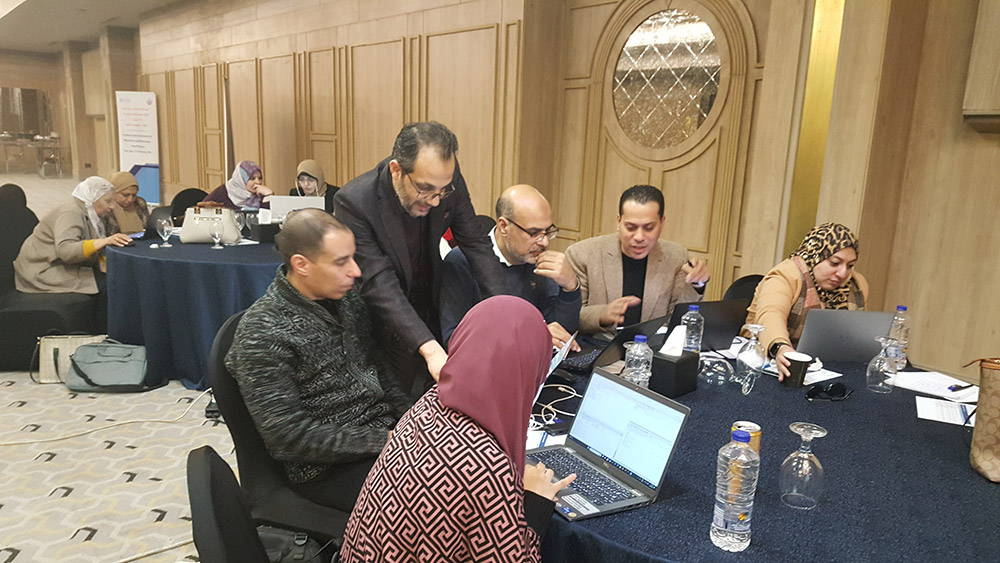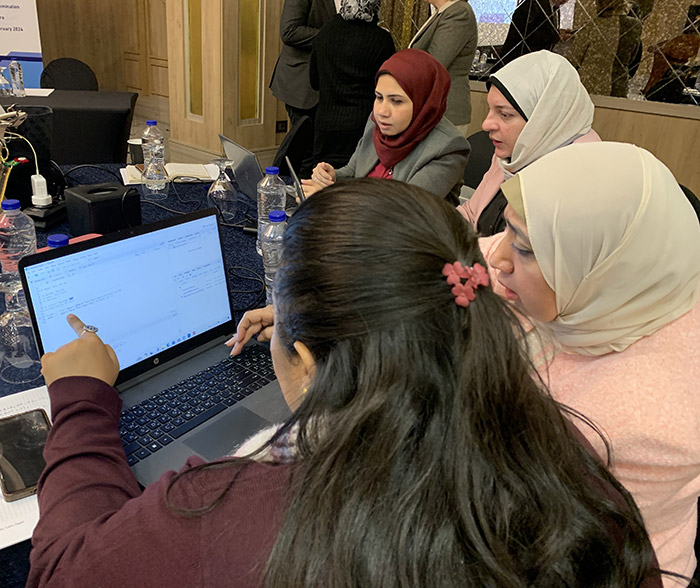 A WHO expert trains participants to use R software. Photo credit: WHO
A WHO expert trains participants to use R software. Photo credit: WHO
13 March 2024, Cairo, Egypt – A recent capacity-building training in data analytics and dissemination, using R software, aims to strengthen data management in health emergency response in Egypt. The session was held in Cairo on 25–29 February 2024.
The WHO Regional Office for the Eastern Mediterranean organized the training with the WHO Country Office in Egypt, the Egyptian Ministry of Health and Population, and the Egypt Field Epidemiology Training Program (Egypt-FETP).
Thirty epidemiologists and surveillance officers from the Ministry’s preventive sector took part in the training. Personnel from the United States Centers for Disease Control and Prevention (CDC) Middle East/North Africa Regional Office and WHO Egypt also participated.
R software is an open-source programming language tool that is increasingly popular among public health professionals around the world. The training enhanced the ability of attendees to manage and analyse health emergency data using the tool.
 Participants apply skills learned during the training. Photo credit: WHOParticipants gained a foundational knowledge of the R language and RStudio – a user-friendly interface for R. They also acquired skills to perform essential data steps, such as data checking and processing; to conduct analyses; and to generate reports. All these aspects are crucial to ensure the accuracy and timeliness of information needed to shape public health decisions and strategies.
Participants apply skills learned during the training. Photo credit: WHOParticipants gained a foundational knowledge of the R language and RStudio – a user-friendly interface for R. They also acquired skills to perform essential data steps, such as data checking and processing; to conduct analyses; and to generate reports. All these aspects are crucial to ensure the accuracy and timeliness of information needed to shape public health decisions and strategies.
The training is the first step towards creating a network of public health professionals skilled in the use of R software. Through training of trainers’ sessions, the attendees can pass on their new knowledge to health professionals from the Egyptian Ministry of Health and Population. These individuals can then train others to use the tool.
WHO Representative in Egypt Dr Nima Saeed Abid attended the training’s closing session, along with senior management from the Ministry. Reference was made to the value of the ongoing collaboration between WHO and the Ministry in organizing these trainings and to the shared commitment to build capacities for effective and timely detection and response to health emergencies.
WHO will continue to help public health professionals leverage the power of R software, which is a major advance for public health. This approach reflects WHO’s commitment to promote innovation, collaboration and knowledge sharing among public health professionals worldwide.




